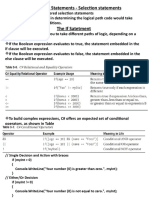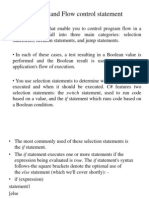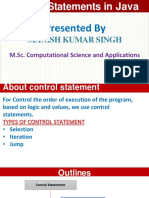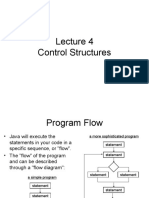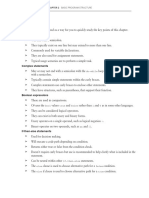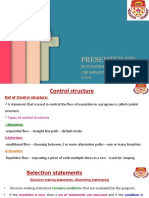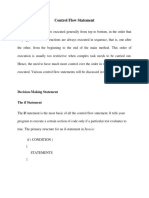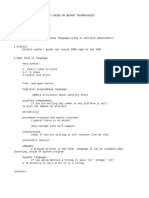0% found this document useful (0 votes)
40 views32 pages4.program Control Statements
Uploaded by
jaycoab2Copyright
© © All Rights Reserved
We take content rights seriously. If you suspect this is your content, claim it here.
Available Formats
Download as PPTX, PDF, TXT or read online on Scribd
0% found this document useful (0 votes)
40 views32 pages4.program Control Statements
Uploaded by
jaycoab2Copyright
© © All Rights Reserved
We take content rights seriously. If you suspect this is your content, claim it here.
Available Formats
Download as PPTX, PDF, TXT or read online on Scribd
/ 32
